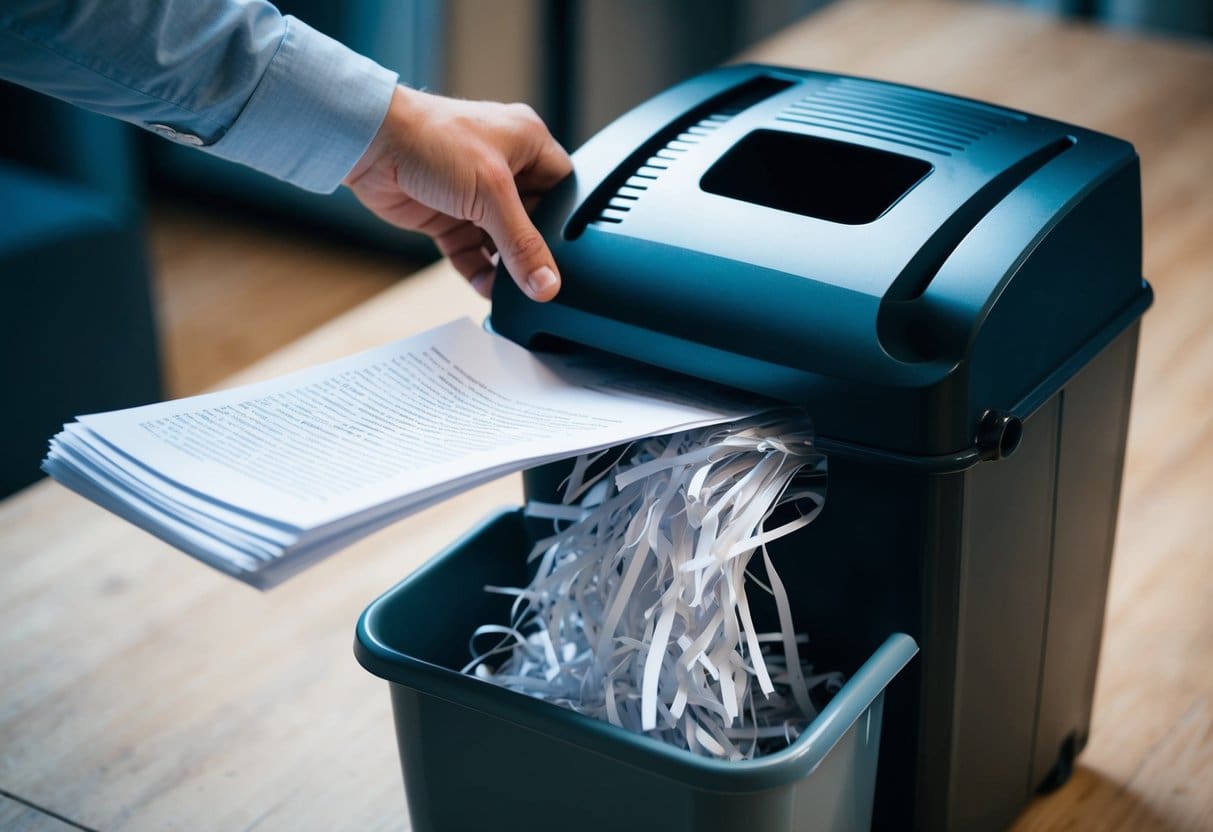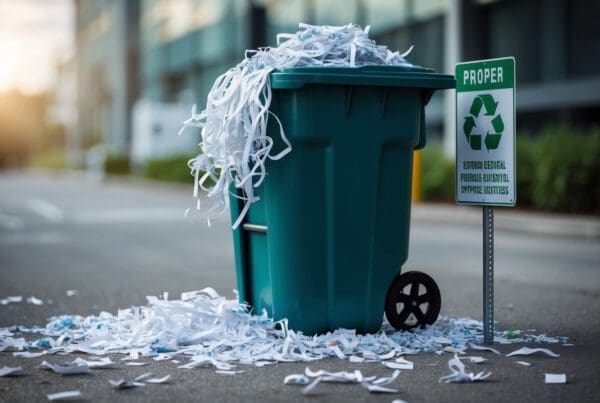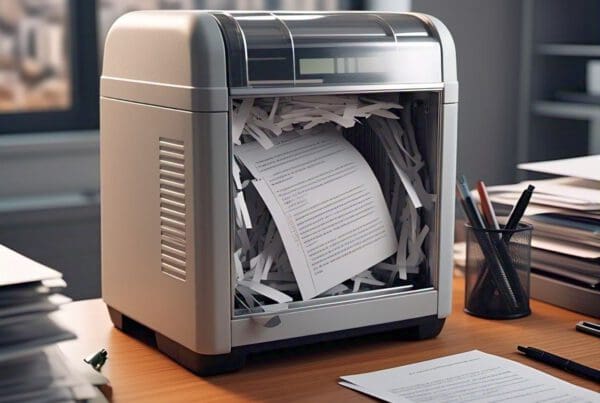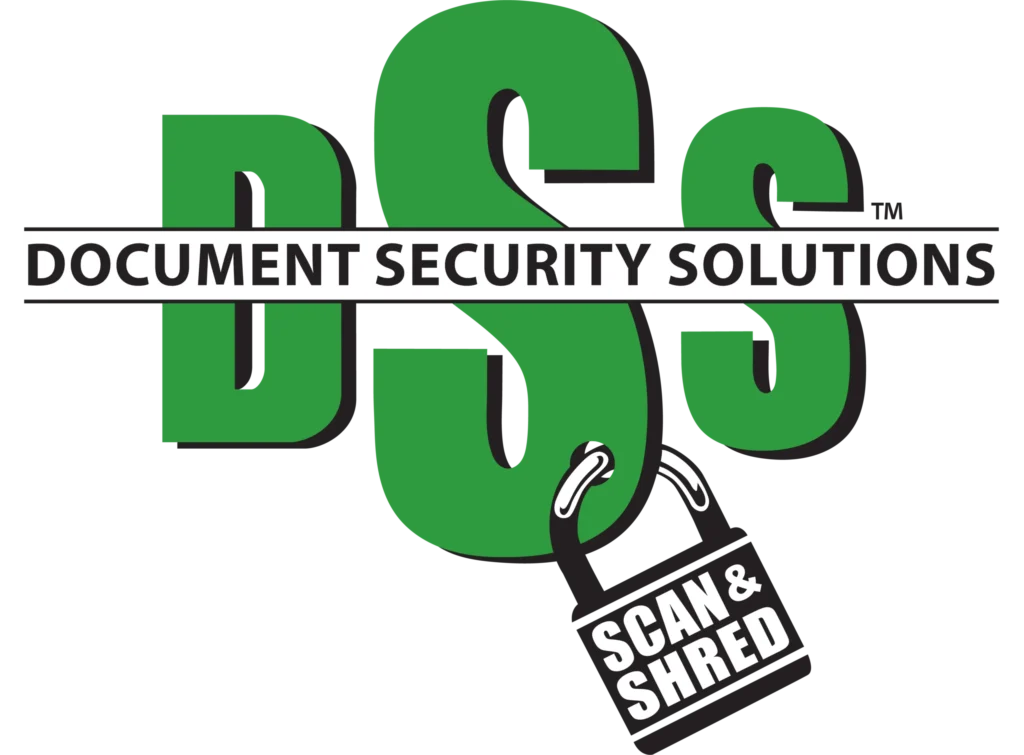The Imperative of Secure Document Destruction

Secure document destruction is vital for data protection. It helps prevent identity theft and data breaches that can have serious consequences. By ensuring documents are properly destroyed, risks are minimized, keeping sensitive information safe.
Understanding Data Protection
In our daily operations, data protection is a top priority. Secure document destruction ensures confidential information does not fall into the wrong hands. Paper documents can be easily forgotten, making them targets for theft.
We must adopt strict destruction policies. This includes shredding and disposing of documents safely. Keeping control over sensitive data helps prevent unauthorized access and security breaches.
It’s essential to educate everyone on these practices. Through awareness, we strengthen our data protection measures.
The Threat of Identity Theft and Data Breaches
Identity theft poses serious risks to individuals and businesses. Data breaches often stem from improper document disposal. When documents with personal info are not securely destroyed, they can be picked up by criminals.
We use secure shredding methods to lessen these risks. Making it a regular practice helps in reducing the chance of exposing sensitive data.
Prevention of identity theft involves not only secure document destruction but also continuous vigilance. Mitigating these threats protects our reputation and finances. We must remain proactive in our efforts to keep information secure.
Legal Framework and Compliance

When it comes to secure document destruction, it’s vital for us to understand the legal requirements and the risks of non-compliance. Regulations like GDPR and HIPAA set strict rules for handling sensitive information. Failure to comply can lead to serious consequences.
Regulations Governing Data Privacy
We must adhere to several regulations to protect confidential information. The General Data Protection Regulation (GDPR) applies to any data related to EU citizens, emphasizing transparency and security. Similarly, the Health Insurance Portability and Accountability Act (HIPAA) focuses on safeguarding health information in the US.
The Gramm-Leach-Bliley Act (GLBA) requires financial institutions to explain how they protect sensitive data. Additionally, the Fair and Accurate Credit Transactions Act mandates protection against identity theft. These regulations ensure companies handle data responsibly and maintain privacy. Compliance with them is crucial to avoid legal penalties.
Consequences of Non-Compliance
Non-compliance with data privacy laws can lead to significant legal penalties. For instance, under GDPR, fines can reach up to €20 million or 4% of annual global turnover, whichever is higher. HIPAA violations may result in fines ranging from $100 to $50,000 per violation.
The Sarbanes-Oxley Act enforces strict record-keeping practices, and failure in compliance can mean hefty fines and imprisonment. Beyond financial repercussions, non-compliance can damage our organization’s reputation. Trust is eroded when data breaches occur, impacting our relationships with clients and partners. It’s crucial for us to maintain confidentiality and adherence to these legal frameworks.
Best Practices for Document Destruction

When it comes to secure document destruction, several practices ensure data security. Effective methods and maintaining the proper chain of custody are crucial.
Methods of Secure Disposal
We have several secure disposal methods to consider. Shredding is the most common, with options like cross-cut shredding, which slices documents into tiny pieces, making data recovery nearly impossible. For large volumes, bulk shredding services efficiently handle mass document destruction.
Mobile shredding brings the service directly to a location, offering convenience and ensuring data never leaves our control. Physical destruction of hard drives, such as degaussing or shredding, completely destroys stored electronic data.
Using shredding services often includes a certificate of destruction, providing proof and peace of mind that all materials were securely processed. These methods enhance data security and help maintain productivity by managing and disposing of sensitive information responsibly.
Ensuring Proper Chain of Custody
Maintaining a secure chain of custody is vital in document management. We begin by restricting access to sensitive documents to minimize risk. Documentation tracks the movement of materials, logging who handled them and when. This ensures accountability at each step.
When using shredding services, selecting a bonded and insured provider assures quality and security. We oversee the entire process, from collection to final disposal, maintaining a strict chain of custody.
Security protocols, like encryption during transit and secure storage before shredding, further enhance protection. This careful handling of documents preserves data integrity and mitigates the risk of unauthorized access or loss.
Protecting Sensitive and Confidential Information
As we address the protection of sensitive documents and confidential information, it is essential to apply effective security measures to safeguard proprietary data and personal information. Ensuring data privacy through proper handling and prevention against unauthorized access is a vital part of our strategy.
Handling Proprietary and Financial Data
Proprietary information and financial data need strict controls. We must identify and catalog sensitive documents and trade secrets clearly. Access to this information should be limited to authorized personnel.
Using encryption is vital to secure digital files. Encrypted data adds a layer of protection against potential breaches. Likewise, when disposing of documents, secure methods such as shredding and recycling must be used to prevent unauthorized recovery.
Intellectual property should be protected through confidentiality agreements with employees and partners. This ensures that all parties handle sensitive information responsibly. Audit trails can help us track and monitor access to critical data, ensuring accountability.
Preventing Unauthorized Access to PII
Personally identifiable information (PII) is especially vulnerable, requiring specific measures to prevent unauthorized access. We must establish clear protocols for handling and storing PII. Employing encryption and strong passwords are fundamental practices for data security.
Regular training for our team ensures awareness of data privacy best practices. This helps prevent accidental breaches and reinforces the importance of vigilance. When transferring PII, secure channels and encryption are necessary to protect this sensitive data.
Limiting PII access to necessary personnel decreases risks. It’s essential to have a plan in place to respond swiftly to any data breaches, with immediate notification processes to mitigate potential damage.
The Role of Professional Shredding Services
When it comes to information protection, professional shredding services play a critical part. We trust these services to handle and destroy sensitive documents securely. The process ensures that confidential data is completely unreadable and protects us from information leaks.
Professional shredding helps us save office space. Piles of old paperwork can clutter our work environment. By using shredding services, we clear up that space. This creates a more organized and efficient workplace.
These services also provide peace of mind. Knowing that our confidential documents are handled by professionals gives us confidence. We are assured that sensitive information won’t fall into the wrong hands.
Using lists is one way to see the benefits:
- Secure data destruction
- Saves office space
- Peace of mind
Additionally, some shredding providers offer on-site shredding. This means they bring equipment directly to our location. We can witness the destruction process, increasing our trust in their security measures.
In the digital age, protecting sensitive information is more important than ever. Shredding services allow us to focus on our core tasks. We can leave the secure disposal of documents to the experts.
By opting for professional services, we manage the disposal process efficiently and securely. This decision is a vital step for any organization aiming to protect its data properly.





